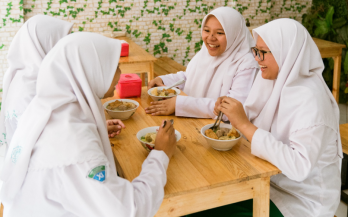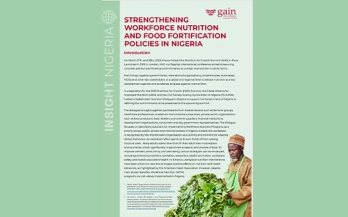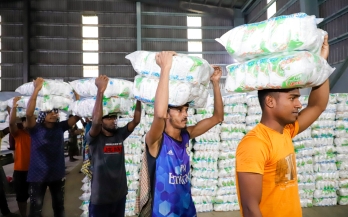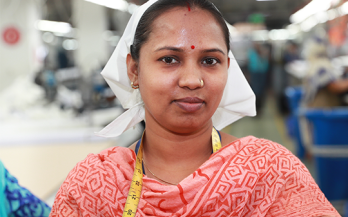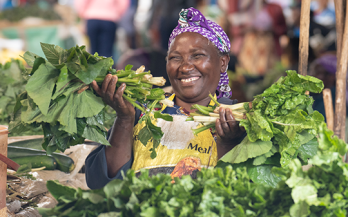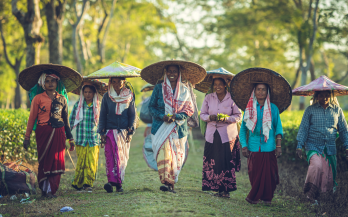- 20/08/2025
The global burden of malnutrition, poor mental health, depression, and noncommunicable diseases (NCDs) continues to grow, contributing significantly to mortality
and poor health, reduced productivity, and economic stagnation. With over 60% of the
population engaged in the workforce and spending more than half of their adult lives at
work, the workplace offers a strategic platform to address these challenges. One
important aspect of worker wellbeing is nutrition, which fuels the body, improves
cognitive and immune function, and reduces sick days and NCD risk.
- 27/05/2025
Adequate nutrition is essential for physical and cognitive development, improved health outcomes, and enhanced overall individual productivity, all of which contribute to broader macroeconomic and societal growth. However, malnutrition remains a pressing challenge, particularly in low- and medium-income countries, including Nigeria. Recent findings from the National Food Consumption and Micronutrient Survey reveal multiple forms of malnutrition, including micronutrient deficiencies.
- 09/04/2025
On March 27th and 28th, 2025, France hosted the Nutrition for Growth Summit (N4G) in Paris. Launched in 2013 in London, N4G is a flagship international conference aimed at securing concrete political and financial commitments to combat malnutrition in all its forms. N4G brings together governments, international organisations, philanthropies, businesses, NGOs and other key stakeholders at a global and regional level to elevate nutrition as a key development agenda and accelerate progress against malnutrition. In preparation for the 2025 Nutrition for Growth (N4G) Summit, the Global Alliance for Improved Nutrition (GAIN) and the Civil Society Scaling Up Nutrition in Nigeria (CS-SUNN) hosted a Stakeholder Nutrition Dialogue in Nigeria to support the Government of Nigeria in defining the commitments to be presented at the upcoming summit.
- 14/01/2025
Workforce Nutrition Programmes (WNPs) can improve the health of workers, but with
mixed results for a business case—which is crucial to their sustainability. This paper thus
explores impact pathways and metrics used to assess the business benefits of WNPs, as
well as the factors that influence the business case, with the aim of informing future
interventions and research.
- 28/11/2024
This report presents objective findings on the current levels of nutrition integration in international instruments and guidelines, and national legislations, regulations and procedures. Nutrition is only integrated in a few examples. Many laws, instruments and codes were developed before worker malnutrition was as prominent an issue and before newer scientific evidence emerged linking worker performance to improved nutrition. This new context, married with the evidence in this report, highlights the enormous opportunity presented to future labour standard setting for employees and employers.
- 30/10/2024
Drawing on GAIN’s evidence-based four pillar framework for effective workforce nutrition programmes and prior experience in India's tea sector, a workforce nutrition programme was proposed, designed and implemented for tea estate workers and their families on 12 tea estates throughout the country. The programme was implemented between February 2021 and March 2023 in collaboration with the Ethical Tea Partnership
- 28/10/2024
GAIN saw an opportunity to establish a workforce nutrition programme designed and implemented for both tea farmers and employed labourers of tea farms in four tea factories in Kericho County, Kenya. The programme was implemented between January 2020 and December 2022 in collaboration with the Ethical Tea Partnership, and aimed to reached 26,000 workers.
- 11/09/2024
Enhancing nutrition for India’s working-age population through workforce nutrition practices can yield numerous benefits, including improved well-being for workers and their families, better productivity, and a stronger economy. Key pillars include access to healthy food, breastfeeding support, nutrition health checks, and nutrition education.
- 09/08/2024
Poor diets are the leading cause of global ill health, resulting in malnutrition and deficiencies such as anaemia, decreased energy levels, diminished health, and decreased productivity. A diverse diet containing a wide variety of food types is more likely to provide the vitamins and minerals needed for good health, to boost brain and body development, and bolster resistance to infections. However, in 2021, more than 3.1 billion people in the world—or 42 percent of the global population—were unable to afford a healthy diet. Tea workers and farmers, predominantly women, often contend with high rates of malnutrition due to diets lacking essential nutrients. Healthy Diets for Tea Communities is a public-private collaboration between the Global Alliance for Improved Nutrition (GAIN), the Ethical Tea Partnership (ETP), and eight leading tea companies, which aims to promote healthy diets in tea supply chains in India, Malawi, and Kenya. This document summarises programme results in Kenya.
- 09/08/2024
Global tea production totals over USD 17 billion annually, and the sector continues to grow. In many countries, the tea sector contributes significantly to income and employment for millions of rural families, with smallholder farmers producing 60 percent of world production. However, tea workers and farmers often suffer from high malnutrition rates because their diets, which consist largely of staple foods such as rice, bread, maize, and wheat, often lack foods rich in essential nutrients and vitamins needed for good health. Nutritious foods are often less affordable and available to this population, and they may be less aware of the importance of healthy diets. In Assam State, one of the main tea-producing states in India, 18 percent of women are underweight, 66 percent of women are anaemic, and 15 percent of women are overweight.
